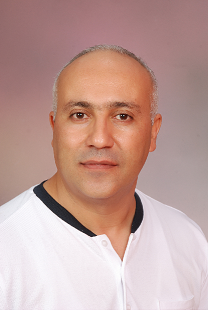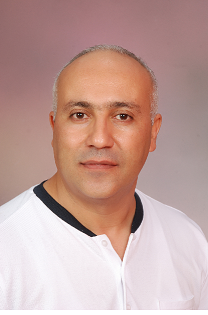Day 1 :
Keynote Forum
K. Gillerman*, A. Kulkarni, A. Shah, A. Gudi, R. Homburg
Homerton University Hospital, UK
Keynote: The impact of acupuncture on IVF success rates: A randomized controlled trail
Time : 09:30-10:00

Biography:
Karin Gillerman obtained her training (LAc, BSc with honor) from the Israeli college of integrative medicine 1998. She specialized in TCM for women health and gynecology and further specialized in acupuncture to support IVF and infertility (PCOM, NY). She practices acupuncture in the UK (NHS and private fertility clinics) and leads a RCT at the HUH. She teaches and lectures worldwide and participated as a speaker in international medical conferences. Her unique approach is to integrate acupuncture with western medicine as to support fertility treatments and improve their outcome.
Abstract:
Clinical trials assessing benefits of acupuncture on IVF have differed in study design, protocol, outcome measures and commercial bias. This heterogeneity precluding firm conclusion regarding the efficacy of acupuncture in this field. To address this, international acupuncturists experienced treating women during IVF participated in Delphi questionnaires and reached a consensus protocol to be used in future research (Smith et al 2012). This was the first study to use this agreed standard protocol. This was an RCT, in which 157 women were randomised to receive either acupuncture treatment three times in the treatment cycle in addition to our standard IVF protocol (n=79) or no acupuncture treatment (n=78 ). All women in the study were undergoing their 1st or 2nd IVF cycle, were 23-43 years old with BMI<30. Those randomised to the study group (n=79) received acupuncture based on the Delphi consensus protocol, between days 6-8 of ovarian stimulation and twice on the day of embryo transfer before and after transfer. The IVF practitioner was blinded to the randomisation. The primary end point was live birth. 15/79 women in the intervention group withdrew from the study (did not complete the acupuncture treatment or had cancelled cycles) compared to 9/78 women from the control group (P <0.001). A per-protocol analysis revealed that the rate of live births (27/64, 42% vs 11/69, 15.94% P=0.03) and positive pregnancy tests (34/64, 53% vs 19/69, 27.53% ,) were significantly higher in the acupuncture group compared with the control group (p<0.005). The results of this study imply that acupuncture may be offered as a possible method of improving IVF outcome. This study was the first to follow a widely approved consensus protocol hoping to settle disagreement in the literature and resolve previous disparity.
Keynote Forum
Andreia Trigo
inFertile Life, UK
Keynote: Enhanced Fertility Programme: A new approach improving fertility worldwide
Time : 09:00-09:30

Biography:
Andreia Trigo (RN, BSc, and MSc) is the founder of inFertile Life, multi-awarded nurse consultant, author and TEDx speaker. Combining her fourteen-year medical experience,CBT, NLP and her own eighteen-year infertility journey, she has developed unique strategies to help people undergoing similar challenges achieve their reproductive goals. The Enhanced Fertility Programme is helping people worldwide and has been awarded Best Innovation in Business 2018 and E-Business.
Abstract:
Andreia Trigo is a fertility nurse, NLP coach, TEDx speaker, author and founder of inFertile Life, an organisation that supports people during their fertility journey, helping them improve their physical and emotional health for fertility.
The Enhanced Fertility Programme is an evidence-based approach, informed by research in collaboration with London South Bank University. For our work in this field we have been awarded NLP Coach of 2017, Best Innovation in Business 2018 and E-Business of 2018. The Enhanced Fertility Programme is an innovative response to the worldwide worsening fertility rates. We wanted to provide a solution that would address the infertility problem at its source and would support people not only in Europe, but in more deprived areas of the world where people don’t have easy access to healthcare professionals.
During this talk, we explain how we developed an award-winning solution that is making a difference worldwide. We also discuss the research data behind it and how you can implement similar programmes in fertility clinics, helping you improve patient education and experience, increase patient acquisition and patient retention rates.
Keynote Forum
Radhouane Achour
El Manar University of Tunis, Tunisia
Keynote: A rare case of cornual twin pregnancy
Time : 12:20 - 13:00

Biography:
Radhouane Achour is an Associate Professor at Faculty of Medicine of Tunis, Tunisia. He has published many basic and clinical articles in relation to Gynecology and Obstetrics. His research interests include rare diseases in gynecology and prenatal diagnosis. He serves as an Associate Professor at the Emergency Department of Gynecology and Obstetrics in Maternity and Neonatology Center, Tunisia. He also serves as a Member of the Editorial Team for: Asian Pacific Journal of Reproduction, The Global Journal of Rare Diseases, Journal of Neonatal Biology, Current Pediatric Research, Obstetrics and Gynecology: Open Access, Pediatrics and Health Research, and a Member of the Science Advisory Board.
Abstract:
The cornual pregnancy is a rare entity that represents almost 2% of ectopic pregnancies. Factors influencing the occurrence of interstitial twin pregnancy specifically have not been elucidated, and the true incidence is unknown because of the rarity of this condition. We report the first case diagnosed in our department. A 46 years multigravida female, gravida: 6, para: 4, presented to our clinic with the complaint of an acute lower painful abdomen at nine weeks of gestation. The current spontaneous pregnancy is estimated at nine weeks of amenorrhea (WA). The beta-HCG rate was 29000 UI/ml. The patient consulted the emergency of the maternity and neonatal center of Tunis with the complaint of an acute lower painful abdomen. An emergency laparotomy was performed under general anesthesia. In the exploration: no hemoperitoneum, a right cornual pregnancy of 3 cm, the pathology report confirmed the diagnosis of tubal twin pregnancies, the cornual pregnancy, although rare, is an unusual ectopic pregnancy, with a very grave prognosis and should be diagnosed at an early stage.
Keynote Forum
Mahtab Karimi
Keynote: Ovarian torsion after ovarian hyperstimulation syndrome: a case report

Biography:
Mahtab Karimi is a Gynecologist at the Sari –Iran, Nime Shaban Hospital. She is also a part of the IVF Department of Hazrat-e Maryam Fertility Center located in Iran. She has been the Chief Director of Obstetrics and Gynecology Department of Shohada Hospital, Bandar Gaz, and also the Chief Director of Obstetrics and Gynecology Department of Imam Khomeini Hospital Bandar Torkaman, Iran, 2012-2013.
Abstract:
Introduction: Ovarian hyperstimulation syndrome (OHSS) is rather frequent (1-5%) in women submitted to superovulation with gonadotropins for in vitro fertilization (IVF). Multiple pregnancy, gestational trophoblastic disease, primary hypothyroidism, thyroid-stimulating hormone/gonadotropin-secreting adenomas, and mutations of the FSHR gene may trigger spontaneous OHSS.
Purpose: Aim of the study is to investigate the incidence, progress, management and outcome of adnexal torsion after controlled ovarian hyperstimulation in embryo transfer cycles.
Presentation of Case: A woman 25 years old (gravida 0 para 0) with first infertility of 2-year duration with bilateral polycystic ovaries and timed intercourse came for further treatment to our clinic. Her body mass index was 20. She was planned for controlled ovarian stimulation for IVF and was given short protocol stimulation with urinary FSH was started on day two of menstrual cycle, starting Recagon dose was 225 IU s/c for duration of eight days. An antagonist was started on seventh day of menstrual cycle Decatopile 0/1 subcutaneous was given for oocyte maturation. On day 12th there were 15 dominant follicles in left and right ovary oocyte retrieval was done on day 14th of cycle. She came with sudden onset of severe right-left sided abdominal pain with increasing severity in next two hours. On the day of pick up rotation occurred. She had no medical or surgical history. On examination, she had tachycardia+ 108/min, blood pressure – 110/80, respiratory rate – 18/mnt. She had moderate abdominal distension; severe right-left sided guarding. Abdominal ultrasound were done suggested enlarged bilateral ovary-right 14×10 cm and left 8×9 cm with multiple cysts, fluid in paracolic gutter and Morrison's pouch. She was diagnosed with severe OHSS. Doppler study was not conclusive about torsion. Pain decreased with injection Tramadol. With further episode of severe abdominal pain after two hours of admission, decision was made for emergency laparoscopy. Ultrasonography showed that bipolar ovaries of normal diammonotic and large ovaries with thick blood flow in the left and left ovary, in the abdominal cavity indicative of hemoperitoneum, were shown. Emergency laparoscopy was done and bilateral ovarian torsion with retained vascularity was noted. Biochemistry and thyroid function were normal. Laparoscopy for OHSS complication has been confirmed by the torso of the ovary. Enlarged bilateral ovaries and hemoperitoneum were observed. The left adnexa were twisted around the stem and an ischemic adenoidectomy was performed and two liters of blood was sprayed. Later, anatomopathological examination confirmed ovarian ischemia. The pathogenesis of OHSS involves hyperstimulation of FSHR by FSH or other glycoproteins with similar structures. Recently, mutations of the FSHR gene leading to an increased sensitivity of the receptor to normal levels of hormones have been described, although a standard genetic test has yet to be developed. Several circumstances may increase the levels or biological activity of these glycoproteins.
Conclusion: OHSS can be associated with life-threatening complications that require early diagnosis for successful management. The etiology should be determined in order to focus the treatment and avoid future complications.
Keynote Forum
Mahmoud Soliman
Cairo University, Egypt
Keynote: Seropositivity of Helicobacter pylori among pregnant Egyptian females with hyperemesis gravidarum, anemia and effect of eradication of Helicobacter pylori in treatment of Anemia

Biography:
Mahmoud Soliman has completed his MSc followed by MD in Obstetrics and Gynecology, from Faculty of Medicine, Cairo University, Egypt. He is a Lecturer and Consultant of Ob/GYN in Faculty of Medicine, Cairo University, which is one of the most senior referral hospitals in Egypt. He has published more than 10 papers in reputed journals; the last one was in the AJOG.
Abstract:
Aim: Aim of this study is to detect the relationship between H. pylori infection and pregnancy related disorders: Anemia and hyperemesis gravidarum.
Patients & Method: Our study is prospective case control study in which patients pregnant 6-12 weeks of gestation are divided into three groups: Control group of 144 patients, hyperemesis gravidarum group of 88 patients, anemia group of 128 patients. Seropositivity for Helicobacter pylori is studied in each group in addition H. pylori positive patients in anemia group are divided into two groups and asked to return in second trimester and one group of them took treatment of anemia alone, while the other one took treatment of anemia and H. pylori treatment and the change in HB levels were detected in both groups.
Results: The percentage of H. pylori seropositive patients in the control group was 45.8%, in hyperemesis group 86.4%, while in the anemia group was 84.4% (p< 0.001). The change in HB in the group which was given treatment of anemia alone was 0.936±0.325 while it was 1.438±0.354 in the group, which was given treatment for anemia plus treatment to eradicate H. pylori (P<0.001).
- A rare case of cornual twin pregnancy

Chair
Radhouane Achour
El Manar University of Tunis, Tunisia
- Prenatal & Postnatal Care – A woman’s Approach
Session Introduction
Gwacham-Anisiobi Uchenna
University of Liverpool, England
Title: Respectful maternity care: Women’s perspective of disrespect and abuse during pregnancy, labour, and birth in Imo State, Nigeria

Biography:
Uchenna Gwacham-Anisiobi is a Medical Doctor and a public health enthusiast with interests in health promotion, Healthcare Quality Improvement, Maternal and Newborn Health, as well as Health systems strengthening. She is particularly passionate about maternal and newborn health; improving the indices in Nigeria and other Low-Middle-Income Countries. Uchenna is committed to continuous health systems improvement and aspires to be a part of the innovative solutions which will make healthcare safer across the continuum. She is currently pursuing her master’s degree at the University of Liverpool (online) in Public Health – Management of Health systems. She is a Fellow of the International Society for Quality in Health Care.
Abstract:
Statement of Purpose:
With a Maternal Mortality Ratio of 576 per 100,000 live births in 2013, Nigeria contributes a disproportionately high number of maternal deaths to the global burden. In Nigeria, only 38% of deliveries occur at a health facility, and health-facility delivery has been associated with better health outcomes. Disrespect and abuse of mothers during pregnancy, labour, and birth is a serious global public health issue and has been documented as a deterrent for health facility use. This study will explore women’s perspective of disrespect and abuse during maternity care in Imo state, Nigeria, and how this influences their future health-seeking behaviors.
Methodology & Theoretical Orientation:
Participants would be purposively recruited from women who have received maternity care (in pregnancy, labour, and birth) for at least one completed gestation from a health facility in Imo state Nigeria. All participants must have experienced one or more disrespectful or abusive care. A phenomenological study would be conducted using in-depth interviews for the participants till a data saturation is attained. Audio recordings of the interviews would be transcribed and analyzed using a six-stage thematic analysis in accordance with the phenomenological approach.
Dr. Chris Griffin
Statewide Obstetric Support Unit, Western Australia
Title: Human factors in maternity incidents

Biography:
Chris Griffin is a Medical Director at the State-wide Obstetric Support Unit of Western Australia. He has also been a Consultant Obstetrician and Subspecialist in Maternal and Fetal Medicine. He has published extensively in books and major professional journals.
Abstract:
Human factors are issues affecting how people do their jobs. They are the social and personal skills, such as communication and decision making which complement our technical skills. These are important for the safe and efï¬cient provision of medical services. The study of human factors involves applying scientiï¬c knowledge about the human body and mind to help understand human capabilities and limitations. Human factors knowledge can be used to reduce the likelihood of errors and build more error tolerant and more resilient systems. I will be presenting strategies to reduce human error in maternity care.
- Vaginismus
Session Introduction
Samaneh Rostamian
Mysore University, India
Title: Vaginismus and subfertility: Case reports on the association observed in clinicalpractice
Biography:
Samaneh Rostamian has completed her PhD in field of Clinical Psychology from Kerala University, India, in 2014 and had completed her Master’s degree in Mysore University, India (in the same field). She is a Clinical Psychologist and is studying advanced language courses in her field now.
Abstract:
The purpose of this research is to analyses patients with vaginismus. It is a condition in which involuntary muscle spasms prevents vaginal penetration. This often results in pain with attempts at sex. Often it begins when sexual intercourse is first attempted. This reaction is completely inhospitable and uncontrollable and prevents any foreign object from entering, even the finger or tampon to the vagina. Vaginismus can lead to sexual impairment, emotional disturbances and marital disharmony. This research includes a series of cases of Malaysian women, who had been suffering from vaginismus and infertility. There was no history of traumatic sexual experience or any major psychiatric illness in these patients and majority of the patients had prominent symptoms of anxiety. They had unique psychological features, which require psychological interventions. Generally there is a relation between infertility and vaginismus but in some cases, shows that pregnancy was still possible despite the women suffering from vaginismus and can still have vaginal delivery. The underlying cause is generally a fear that penetration will hurt. It is thought to be more prevalent in younger women, women with negative attitudes towards sex and those with a history of sexual abuse. Treatment may include behavior therapy such as breathing exercises and relaxation techniques assist in overcoming sexual anxieties.
- Intrapartum Care & Abnormal Labour
Session Introduction
Gwacham-Anisiobi Uchenna,
University of Liverpool, England
Title: Endangered at birth: sociocultural factors affecting the consent to an emergency cesarean section in Southeastern Nigeria

Biography:
Gwacham-Anisiobi Uchenna is a Medical Doctor and a Public Health Enthusiast with interests in health promotion, healthcare quality improvement, maternal and newborn health, as well as health systems strengthening. Currently, she is pursuing her Master’s degree at the University of Liverpool (online) in Public Health-Management of Health systems. She is a Fellow of the International Society for Quality in Health Care. She is particularly passionate about maternal and newborn health; improving the indices in Nigeria and other low-middle-income countries. She is committed to continuous health systems improvement and aspires to be a part of the innovative solutions, which will make healthcare safer across the continuum.
Abstract:
Nigeria is a very important country for global maternal death burden. Nigeria and India alone contributed to over one-third of the global maternal deaths in 2015. The World Bank estimates that the maternal death in Nigeria was about (814; UI 596 to 1180) per 100,000 live births in 2015. Several factors are responsible for the trend of maternal deaths in the country, one of which is the rate of institutional deliveries, which stood at about 38% in 2017. Of the women who choose to deliver in a health facility, outright refusal of cesarean deliveries is common place even in emergent critical conditions. Several opinions and schools of thought have emerged in trying to understand this trend in Nigeria. In this session, I will be sharing five stories which represent the five major typologies for women who refuse cesarean births in Southeastern Nigeria. There is an urgent need to increase awareness of the safety and the role of emergency cesarean section in Nigeria as these interventional deliveries when indicated have been proven to drastically reduce maternal and perinatal mortalities.
